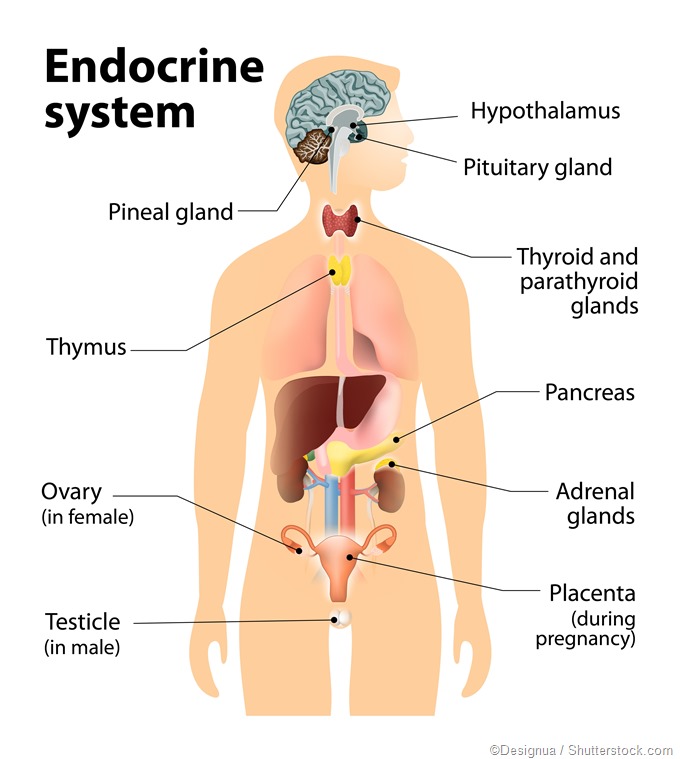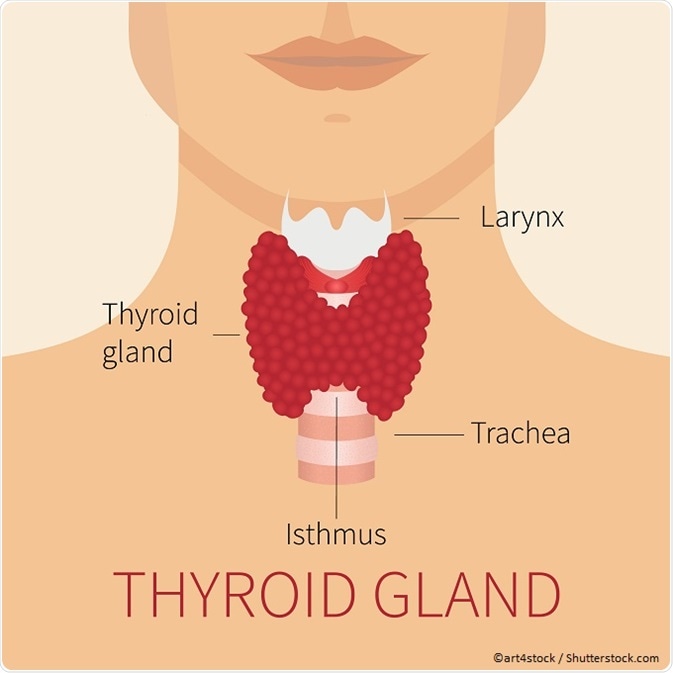Surgery performed with its focus on one or more of the endocrine organs is referred to as endocrine surgery. The endocrine organs are glands located throughout the body, which secrete hormones that are vital for maintaining homeostasis (i.e. a constant internal environment) and metabolism into the bloodstream.
These glands together make up what is known as the endocrine system, whose control and command centers are the pituitary gland and hypothalamus. Other endocrine glands are the endocrine pancreas, pineal, adrenal, thyroid and parathyroid glands. Specialists who conduct surgery on these glands are called endocrine surgeons.

Hypothalamus and pituitary gland
Hamartomas, although rare, are non-neoplastic tumors that arise in the hypothalamus and cause devastating consequences, such as seizures, cognitive impairment, behavioral and emotional troubles, hormonal imbalances and early puberty. Surgical removal of the tumor is required, and surgeons take advantage of the physiological gap between the hemispheres of the brain to gain access to the tumor and remove it.
Another less invasive approach is the use of stereotactic radiosurgery (gamma knife), which uses light energy to destroy the tumor and surrounding damaged tissue. It is a more focused form of standard external beam radiotherapy that targets the tumor more precisely.
The pituitary gland, located at the base of the brain, is the size of a kidney bean, yet is responsible for growth and development, and the function of all endocrine glands. Tumors of the pituitary gland are mostly benign adenomas that remain within the pituitary gland and do not metastasize. However, some tumors produce excess hormone, which is responsible for the symptoms.
Others produce symptoms because of the mass effect of the tumor itself. Most pituitary gland tumors may not require treatment, but if the tumor is compressing the optic nerve, then emergency surgery is necessary. There are two main surgical approaches: an endoscopic trans-nasal trans-sphenoidal (ETNTS) method and a trans-cranial technique.
With the ETNTS approach, surgeons remove the pituitary tumor through the sphenoidal sinuses and the nose. There is no need for an external incision. Moreover, there is no effect on other parts of the brain, and just as importantly, there are no surgical scars producing a better aesthetic effect.
Large tumors, however, may be much more difficult to remove via this method. Therefore, a trans-cranial approach or craniotomy may be done. An incision is made through the upper part of the scalp and the tumor is removed.
Endocrine pancreas and neuroendocrine glands
In contrast to the exocrine pancreas, which produces enzymes for digestion, the endocrine pancreas secretes hormones, such as glucagon, insulin and gastrin. These are produced with the help of specialized cells called “islet cells” that are found scattered throughout the pancreas, which is itself located deep within the abdominal cavity.
Tumors may arise in the endocrine pancreas that warrant surgical removal. These tumors can cause local symptoms due to the mass of tumor compressing adjacent structures, or they may be responsible for clinical syndromes due to the overproduction of hormones.
Cells of neural crest embryological origin can develop into neuroendocrine tumors. These are commonly found in the lungs and gastrointestinal tract, and cause symptoms due to hormone production. Since endocrine pancreatic tumors as well as neuroendocrine gland tumors are found deep within the abdominal cavity, surgery is done under general anesthesia. It may be necessary in some cases to remove parts of the intestine and/ or pancreas.
Pineal gland
The pineal gland is the location of the internal biological clock in humans. It is a small gland located posteriorly within the diencephalon in the center of the brain. In the absence of light, and at night, it secretes melatonin, a hormone that plays a pivotal role in regulating circadian and seasonal rhythms.
Although extremely rare, tumors may arise in the pineal gland. These will necessitate surgery to remove the tumor, which can cause serious complications, such as visual impairment, seizures and memory disturbances. Surgical removal is usually curative.
Adrenal glands
The adrenal glands, like other endocrine glands, are also susceptible to the formation of tumors, both benign and malignant, that can cause a wide range of symptoms. Most of these tumors can be surgically removed, and are usually amenable to laparoscopy. In some patients, however, an open adrenalectomy may be required. Associated risks include infection, bleeding and extreme changes in blood pressure. These risks are outweighed by the medical benefits of the surgery.
Thyroid and parathyroid glands
Thyroid gland removal, also referred to as thyroidectomy, may be indicated for benign and malignant thyroid lesions, as well as an overactive thyroid gland. The amount of the gland removed depends on the indication for the surgery. Partial removal is warranted in some cases, allowing the remaining parts to function normally after the operation.

In contrast, total removal means that the patient will need lifelong thyroid hormone supplementation, as is the case when other endocrine glands are completely removed. It is a relatively safe procedure, but may have associated risks, such as bleeding, infection and inadvertent injury to the laryngeal nerve, or the parathyroid glands.
Thyroidectomies may be done by one of three approaches. In the first, which is the conventional approach, an incision is made down the center of the neck to access the gland directly. In the second approach, the gland is removed endoscopically with smaller neck incisions. The third approach is called the robotic method. Here incisions are made in the chest or armpit, circumventing the need for incisions in the center of the neck.
Parathyroid surgeries may also be required for similar indications as a thyroid surgery and the diseased parathyroid gland is surgically removed via neck incisions in a similar fashion.
References
- http://www.endocrinesurgeons.org.au/endocrine-surgery
- https://www.barrowneuro.org/specialty/hypothalamic-hamartoma/
- http://www.aans.org/Patient%20Information/Conditions%20and%20Treatments/The%20Pituitary%20Gland%20and%20Pituitary%20Tumors.aspx
- https://www.hopkinsmedicine.org/
- http://www.mayoclinic.org/tests-procedures/thyroidectomy/basics/what-you-can-expect/prc-20019864
- https://www.collectedmed.com/aaespatienteducation
Further Reading
Last Updated: Jan 3, 2023